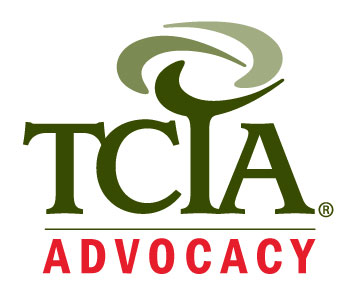One of the top priorities for the 118th Congress is the reauthorization of the Farm Bill. For tree care providers and vegetation management contractors, policymakers’ efforts to address challenges facing the nation’s forests and outside stakeholders’ support for pesticide preemption are likely to have direct impact on company operations.
The multi-year Farm Bill, evaluated every five years, authorizes funding for a variety of the nation’s agriculture, food, forestry, energy and research programs. As the last Farm Bill was enacted in 2018, many programs are set to expire on September 30, 2023, unless policymakers act to extend their authorization or reauthorize them as part of a new Farm Bill.
Given the hundreds of billions of dollars at stake and the wide variety of programs funded by the bill, thousands of stakeholders are becoming increasingly involved in the debate surrounding the legislation’s passage.
Background on the Farm Bill’s Forestry Title
Since its formulation in 1933, the Farm Bill has sought to establish price controls on agricultural products and to support farmers. Over time, the Farm Bill’s application has become increasingly expansive, with funding for Fiscal Years 2024-2028 expected to reach $709 billion. While food assistance programs consume a large portion of the Farm Bill’s funding, the legislation also supports efforts to resolve nature-related challenges, such as wildfires. This work is carried out by the U.S. Department of Agriculture (USDA) and its agency, the Forest Service (USFS), through the legislation’s Forestry title.
As the USFS is responsible for conducting forestry assistance, research and management on 145-million acres of U.S. forestland, much of the agency’s funding and programs results from permanent authorizations. While they do not need reauthorization, Congress may include these programs in the Farm Bill to make policy changes or achieve budgetary goals.
Priorities of the 118th Congress
Farm Bill negotiations are led by the Senate Committee on Agriculture, Nutrition & Forestry and the House Committee on Agriculture. Each chamber has scheduled several hearings with experts and stakeholders to discuss potential changes and improvements.
Often, the Farm Bill moves through the legislative process in a bipartisan manner. However, Republicans, including Ranking Member Senator John Boozman (R-AR), have expressed concern over the Inflation Reduction Act’s (IRA) focus on climate and carbon sequestration. The concern is that the IRA may limit the ability of producers to implement conservation practices related to nutrient and water management. They asked if producers unable to implement climate or carbon-sequestration projects would still have access to Farm Bill and IRA funds. Additionally, Boozman requested regular updates on how the USDA is utilizing its funding.
On the other hand, Democrats have expressed support for maintaining IRA funding while supporting small farmers who have increasingly struggled due to the nation’s increasing reliance on large farms. Both Senate Republicans and Democrats have recognized the challenges of the labor shortage and its impact on carrying out objectives. They have encouraged the Forest Service to boost its timber production to support the industry and prevent wildfires.
Wildfire prevention
Given the increasing severity and occurrence of wildfires, Doug LaMalfa (R-CA-1), Chair of the House Forestry Subcommittee, has been outspoken on the crisis. During a hearing with forestry stakeholders, Congressman LaMalfa stated that, “the pace and scale of active management on these forests and landscapes must be drastically increased, and this must happen right now. We must undertake the paradigm shift that the Forest Service has been calling for and dramatically increase management to restore forest health, protect rural residents and reduce the threat of catastrophic wildfire.”
He suggested that “the Forest Service must get more aggressive, increase partnerships with local governments and third parties and cut more trees that will otherwise only contribute to declining forest health and the outbreak of new wildfires.”
In light of the Farm Bill hearing, Congressman LaMalfa enacted Section 20224 to the House GOP energy package, HR.1, to expand the definition of hazard trees from those within 10 feet of a power line to those within 50 feet, and to establish a process for addressing trees on private land. If that bill is not taken up in the Senate, the Farm Bill could be a vehicle to move components with bipartisan support, such as the CLEAR Zones Act.
In March 2023, Forest Service Chief Randy Moore stated to the Senate Subcommittee on Interior Environment and Related Agencies that he is committed to increasing the application of prescribed burns across the National Forest System. Additionally, Moore stated to the House Subcommittee that the Forest Service aims to harvest 3.4 billion board feet of timber this year, up from 3 billion in FY 2021. These approaches to reducing the occurrence and severity of wildfires may be present within this year’s Farm Bill, and lawmakers are expected to continue to debate forest-management practices over the coming months.
Pesticide preemption
Notably, during House and Senate hearings on the Farm Bill, members of Congress expressed concern about invasive pests. A strong supporter of the tree care industry, Senator Mike Braun (R-IN) stated that he had lost 8-10% of his hardwood population due to the emerald ash borer. Similarly, Michael Bennett (D-CO), Chair of the Senate Subcommittee on Conservation, Climate, Forestry and Natural Resources, noted that rising temperatures exacerbated pine- and spruce-beetle infestations.
Jim Neiman, president of Neiman Enterprises, stated that the beetle has devastated 5 million acres of forest in Colorado, and that bug-infested trees are not well rooted and eventually blow over. On the other side of the Hill, Chair of the House Agriculture Committee Glenn “GT” Thompson (R-PA-15) noted that pests, such as the spotted lanternfly and gypsy moth (spongy moth), have devastated Pennsylvania.
As treatment for and eradication of invasive pests often requires the responsible application of pesticides, organizations representing a diverse range of industries have advocated for the inclusion of pesticide preemption language within the Farm Bill. Specifically, advocates for preemption are seeking to modify the Federal Insecticide, Fungicide, and Rodenticide Act (FIFRA) – the law governing pesticide use in the United States – by adding language that would prohibit a political subdivision of a state from imposing restrictions on pesticide use.
Such a prohibition would ensure that applicators work under a set of standardized regulations developed by scientific experts at the Environmental Protection Agency and State Lead Agencies, rather than under a confusing patchwork of regulations set by local governments. These local entities often do not have the scientific experts or the resources to make informed decisions about the safety of pesticide products. While there are only four states – Alaska, Maine, Maryland and Nevada – that do not preempt local units of government from regulating pesticides, inclusion of this language in the Farm Bill would stop active campaigns by anti-pesticide groups to roll back state preemption. Preemption proponents were successful in securing similar language in the House-passed version of the 2018 Farm Bill; however, that provision was stripped out of the final bill following opposition from environmental groups and local governments.
Conclusion
As Congress moves closer to advancing the next Farm Bill, TCIA will follow impactful provisions and provide an overview of the agreed-upon Farm Bill. TCIA will continue to promote the responsible use of pesticides and will consider solutions to the nation’s wildfire challenge.



